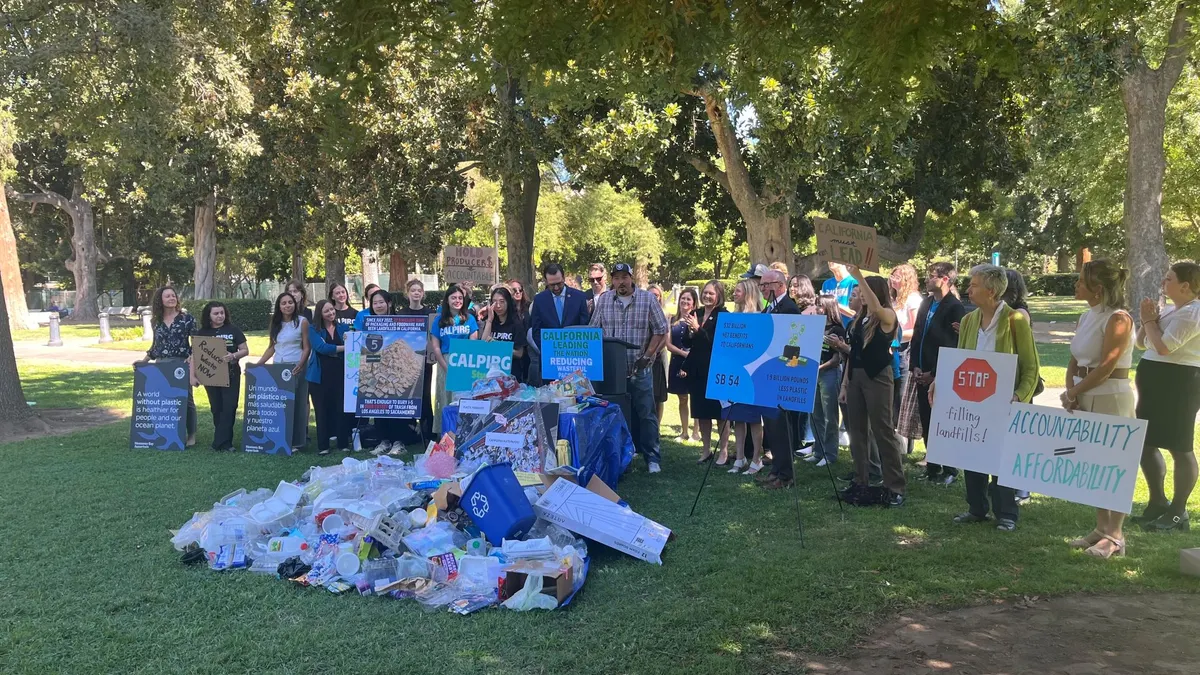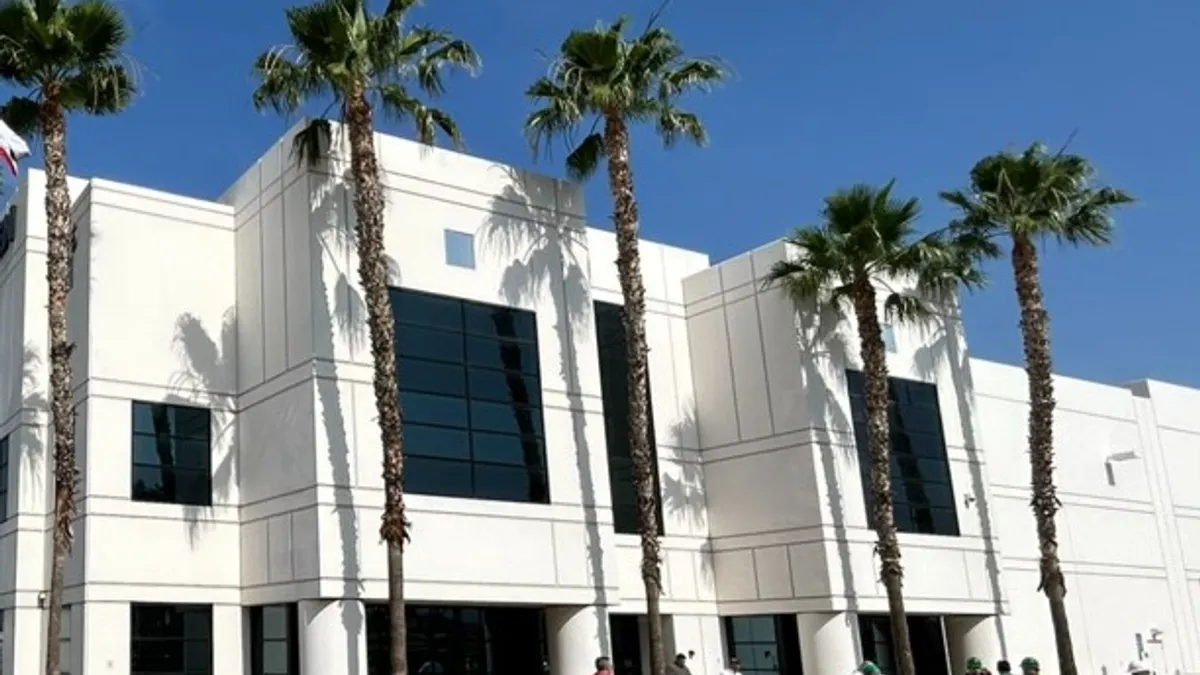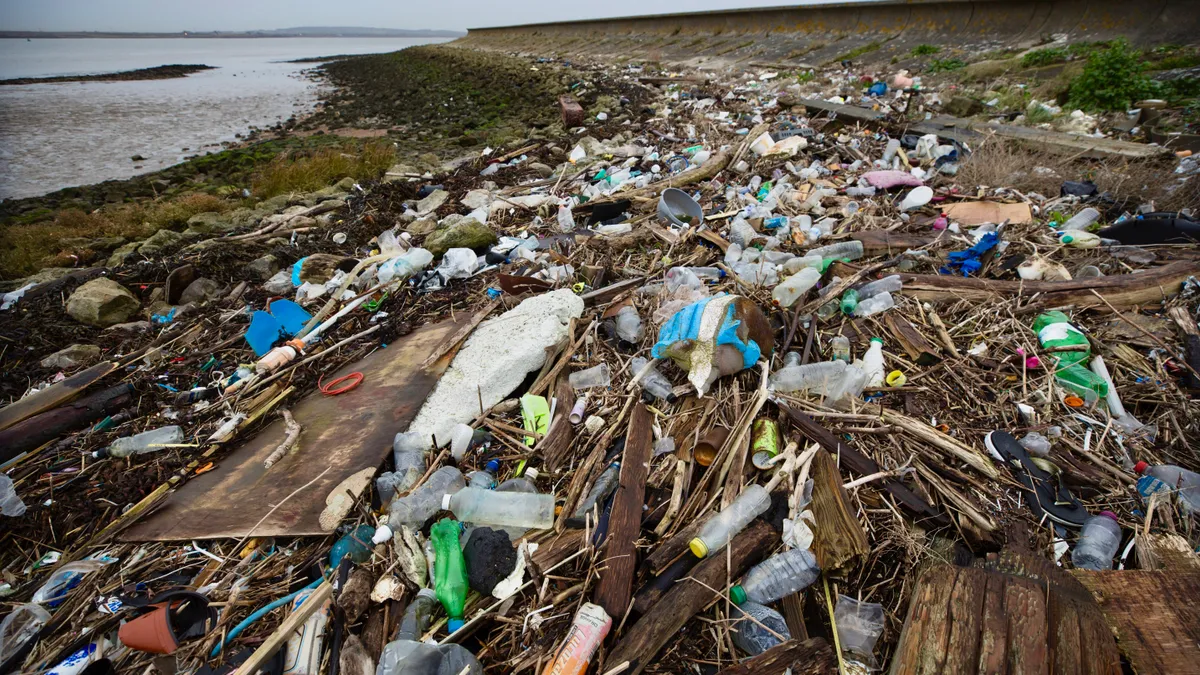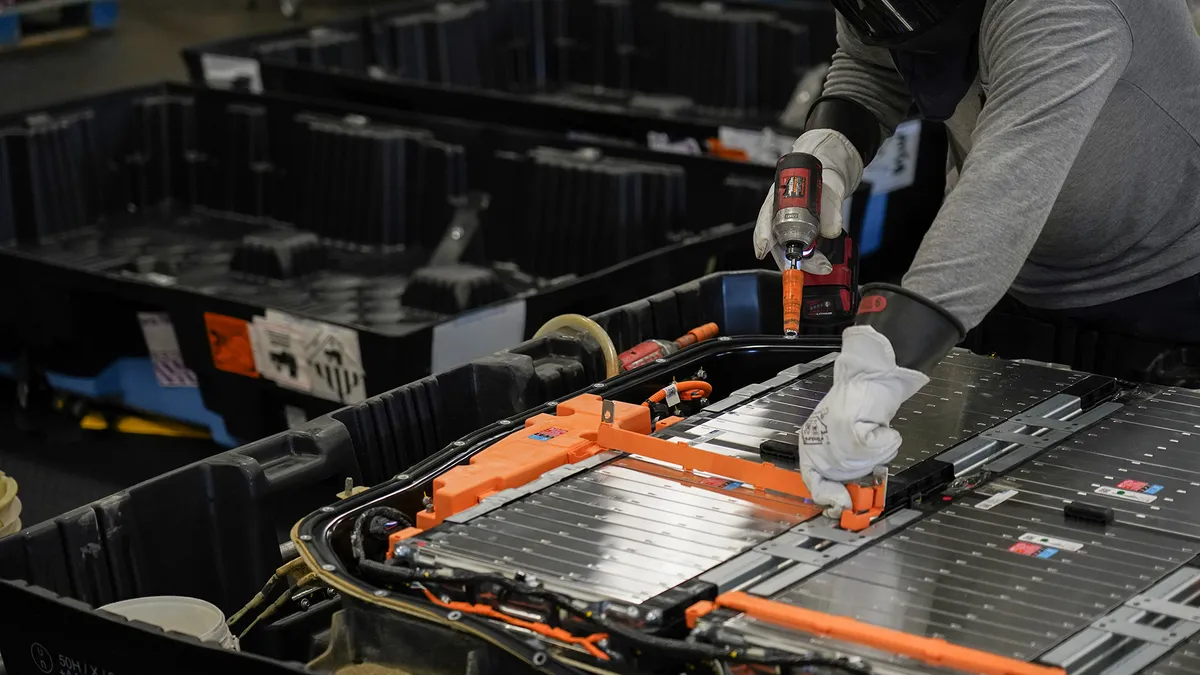An action plan from the House Select Committee on the Climate Crisis highlights a number of federal recycling bills and endorses extended producer responsibility (EPR) policies, among others.
Experts see the 500-plus page document, released on June 30, as an indicator of where Democrats stand on waste and recycling policy, even though they view significant legislation as unlikely to pass under President Donald Trump. The select committee has no lawmaking power and the action plan serves as a blueprint rather than legislation.
Many existing recycling bills are referenced in the plan, and a major focus is "circularity" and upgrading recycling infrastructure while overhauling processes for materials like plastics. Reducing food waste, further regulating methane emissions and upgrading wastewater treatment facilities are also stated priorities.
Jim Riley, chief counsel and senior vice president of government affairs for the National Waste and Recycling Association (NWRA), told Waste Dive his organization has been in touch over the last year and a half with several members of the select committee. He praised some components of the final proposal, but said other parts were "counterproductive," including support for the Break Free From Plastic Pollution Act, which NWRA has opposed in its current form.
David Biderman, CEO of the Solid Waste Association of North America (SWANA), said his organization is still reviewing the action plan and evaluating its potential impact on the industry. He told Waste Dive that SWANA does not think the blueprint will get much traction this year, given economic realities and the pandemic, but said that could change next year.
"It is possible that elements of the plan may get turned into legislative proposals for consideration in 2021, particularly if the Democrats win the White House and get a majority in the Senate," said Biderman.
The action plan aims for zeroing out utility greenhouse gas emissions by 2040 and reaching net zero emissions economy-wide no later than 2050. Environmental justice and labor rights are prominently emphasized, echoing the Green New Deal introduced by Rep. Alexandria Ocasio-Cortez, D-N.Y., and Sen. Ed Markey, D-Mass. in 2019.
Several of the recycling bills under consideration in Congress are singled out in the new plan, including the Save Our Seas 2.0 Act and the Zero Waste Act, along with the Break Free From Plastic Pollution Act. Lawmakers recommend Congress pass those bills and "facilitate the development of infrastructure for materials recovery and recycling." They also suggest Congress broadly throw its weight behind EPR policies, recycled content minimums, and general recycling and organics requirements, in addition to electrifying collection fleets and processing facilities.
"Congress should consider placing fees or bans on certain materials and products, prohibiting certain waste exports, and requiring holistic consideration of future material needs and associated emissions before permitting of new material production facilities," the document says, going on to recommend that standards "should aim to shift the burden of waste management and pollution from the public to producers."
The action plan says such policies should apply to "all major industrial materials" including "plastics and chemicals, iron and steel, cement and concrete, aluminum, glass, and pulp and paper."
A staffer for the select committee told Waste Dive that circular economy principles are "key strategies" for emissions reduction and cited findings by the Energy Transitions Commission showing that implementation across several subsectors, including plastics, could reduce global carbon dioxide emissions by 40% in 2050.
"Select Committee staff heard from several stakeholders in meetings and through responses to our request for information that recycling and circular economy strategies should be included in our recommendations," the staffer said via email, adding the Save Our Seas 2.0 Act and Break Free From Plastic Pollution Act played a key role in shaping the committee's recommendations.
Food waste is also prominent in the blueprint, with an emphasis on agriculture and encouraging composting, as is improving wastewater treatment infrastructure. As part of a focus on decarbonizing, Democrats back "qualified hydropower and landfill gas" as potential solutions. Others include improving community and farm access to small-scale anaerobic digestion, along with expanding waste heat-to-power technology.
Policy recommendations for the disposal of radioactive waste are also included, as well as for hazardous waste from the oil and gas industry. Singling out Superfund sites, brownfields and other toxic waste areas as being vulnerable to climate impacts, the document recommends Congress "establish financial assurance requirements" under CERCLA and increase U.S. EPA cleanup funding.
Along with legislation like the recycling bills, Democrats suggest achieving many of the goals outlined through mechanisms like carbon pricing, tax incentives and backing worker's unions. Support for hazardous waste workers and environmental justice communities is also outlined, including prioritizing the mitigation of air and water pollution.
Republicans on the select committee released a separate statement on the document voicing objections and saying "the nation is in a far different place than when the committee was formed last year" due to the pandemic. That changed reality, they say, means lawmakers should focus more on the economy and less on efforts like zeroing out emissions.
A diverse group of stakeholders have praised the plan, ranging from environmental groups like U.S. PIRG and the Environmental Defense Fund to Zurich North America, part of the Zurich Insurance Group, which called the document a "positive and significant step" in a statement. But Riley of NWRA criticized components of the proposal, including support for a national bottle bill.
"NWRA will support those sections of the action plan that make both environmental and economic sense while working to change the detrimental policies into ones that can garner broad consensus," he said.
Congressional attention has been building around recycling to an extent not seen in years, and the action plan comes as that momentum endures despite a lull due to the pandemic. A Senate hearing last month appeared to revive the upper chamber's interest in federal recycling legislation, with input from Closed Loop Partners (CLP), More Recycling, and the Consumer Brands Association.
During that hearing, CLP Managing Director Bridget Croke said her organization is supportive of efforts to spur market demand for recyclables, including tax incentives. Regarding the new action plan, Croke told Waste Dive CLP is not proactively advocating for any bills, but that engagement with lawmakers has been a priority. "What we try to do is act as experts, to help policymakers understand what type of policy could help drive more investment from the private market," she said.
The proposal has support from some powerful house members including Majority Leader Nancy Pelosi, D-Calif. House Energy and Commerce Committee Chair Frank Pallone, D-N.J., co-chair of the House recycling caucus, praised it as "hugely helpful" and said it validated the work his own committee is undertaking.
"We all agree we must enact thoughtful, ambitious policy changes to get the country to net-zero climate pollution by 2050 and build a clean economy that invests in workers and advances environmental justice," he said in a statement.
EPA Administrator Andrew Wheeler, however, panned the plan as unrealistic. In an appearance on Fox Business, Wheeler said the blueprint will "turn around the economic growth that President Trump has delivered."


















